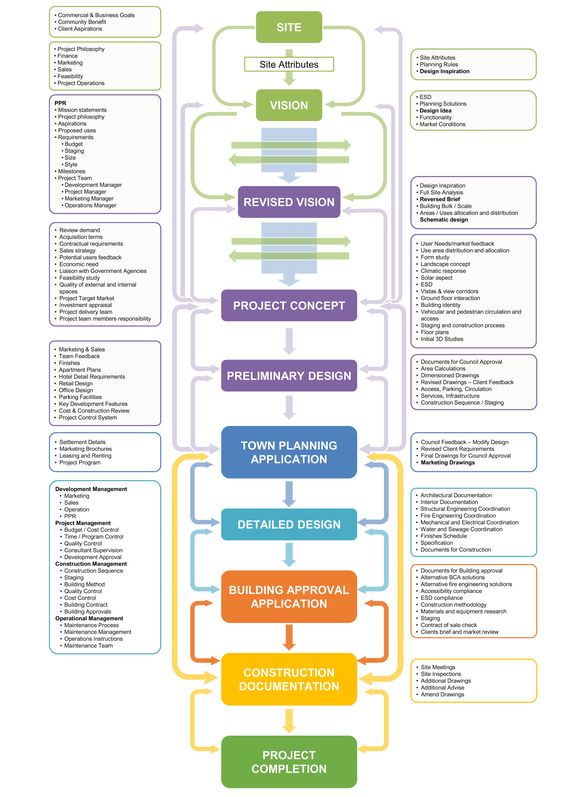According to recent research, approximately 90% of all construction projects fail to achieve complete success. This can be due to a variety of reasons such as poor planning, underestimating risks, ineffective communication, and inadequate project management. Therefore, it is crucial to implement a solid construction project management methodology to ensure the success of your project from start to finish.
In this article, we will explore the key components of the construction project management methodology and how they contribute to the project’s success.
Introduction to Construction Project Management Methodology
The construction project management methodology is a systematic approach to managing the complex processes and tasks within a construction project. It involves organizing, planning, coordinating, and controlling resources such as materials, labor, and equipment to achieve the construction objectives.
The methodology comprises a set of principles, tools, and techniques that guide the project team through every stage of the construction project, from initiation to completion.
Project Initiation
The project initiation phase is the starting point of every construction project. It involves defining the project goals and objectives, establishing the scope of work, and identifying key stakeholders.
The project manager should define the project’s scope by outlining the deliverables, deadlines, resources, and potential risks. They should also document the project requirements, such as building codes, regulations, and safety standards.
Project Planning
The project planning phase involves developing a comprehensive project plan that outlines the project’s overall strategy, timeline, and budget. This phase requires strong project management skills, as the project manager must effectively allocate resources, communicate with stakeholders, and manage risks.
The project plan should include a detailed work breakdown structure (WBS) that outlines the tasks required to complete the project, along with the estimated duration and associated cost. The project manager should also define the roles and responsibilities of each team member and establish a communication plan to ensure effective collaboration.
Project Execution
The project execution phase involves implementing the project plan and coordinating the project team to complete the tasks defined in the WBS. The project manager should closely monitor the progress of the project, identify any problems or delays, and take corrective action as necessary.
The project team should maintain effective communication throughout the execution phase, and the project manager should ensure that all team members are working towards the project objectives.
Project Monitoring and Control
The project monitoring and control phase involves monitoring the project’s progress against the initial plan and taking corrective action to keep the project on track. The project manager should track the project’s performance using key performance indicators (KPIs) such as cost performance index (CPI) and schedule performance index (SPI).
The project manager should also monitor the project’s risks and take mitigation measures as required to avoid potential issues. This phase requires strong analytical skills and the ability to balance competing demands and priorities.
Quality Management
Quality management is a critical component of the construction project management methodology. It involves ensuring that the project meets the required quality standards and specifications. The project manager should implement a quality plan that outlines the quality objectives, deliverables, and acceptance criteria.
The project team should conduct regular quality inspections, testing, and verification to ensure that the project meets the quality standards. Any deviations from the quality requirements should be identified and resolved promptly.
Safety Management
Safety management is another crucial aspect of the construction project management methodology. The project manager should implement a safety plan that outlines the safety objectives, policies, and procedures. This includes identifying potential hazards and implementing appropriate mitigation measures.
The project team should receive regular safety training and follow the safety procedures to minimize the risk of accidents and injuries on the construction site.
Change Management
Change management is a process that enables the project team to manage changes to the project’s scope, schedule, or budget. The project manager should document any changes to the project plan and assess their impact on the project’s objectives.
The project manager should also obtain the necessary approvals and communicate any changes to the relevant stakeholders. Effective change management requires strong communication skills and the ability to manage stakeholders’ expectations.
You might find these FREE courses useful
- What Is a Scrum Master (and How Do I Become One)?
- Modalidades organizacionales ágiles en base a la MetodologÃa Scrum
- Scrum Master Certification: Scaling Agile and the Team-of-Teams
- Combining Scrum with Other Agile Methodologies
Project Closeout
The project closeout phase involves completing all final tasks, obtaining the necessary approvals, and finalizing the project documentation. The project manager should ensure that all deliverables have been completed to the required quality standards and that all outstanding issues have been resolved.
The project team should also conduct a post-project review to identify any lessons learned and areas for improvement in future projects.
Conclusion
The construction project management methodology is a comprehensive approach to managing construction projects effectively. It integrates principles, tools, and techniques to ensure that the project meets its goals and objectives.
Implementing a robust project management methodology requires strong leadership, effective communication, and the ability to balance competing demands and priorities. By following the key components outlined in this article, you can improve the chances of achieving success in your construction project.
